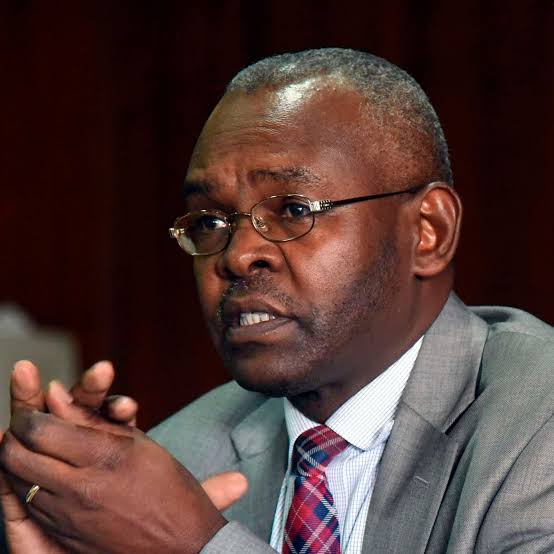Days after information surfaced about ongoing discussions between the Central Bank of Kenya and the Bank of England over the possible storage of part of Kenya’s gold reserves in London, the proposal has drawn sharp criticism from different quarters.
Many Kenyans are expressing concern that such a move could weaken the country’s control over its national assets and expose it to unnecessary foreign influence.
While the Central Bank insists that the talks are only exploratory and part of efforts to diversify the nation’s reserves, legal and economic experts are demanding greater transparency before any agreement is finalized.
Lawyer Abdulhakim Dahir has become one of the most vocal critics of the plan. In a strongly worded letter addressed to CBK Governor Kamau Thugge, he called for the immediate suspension of the negotiations, citing transparency, cost implications, sovereignty, legal compliance, and exposure to what he termed “weaponised finance” as key issues.
He believes the decision to consider storing gold abroad is not only premature but potentially dangerous for Kenya’s economic independence.
According to Dahir, all discussions with the Bank of England should be made public and opened to national debate before any commitments are made.
Dahir has also urged the central bank to conduct a detailed cost-benefit analysis to determine whether the proposal genuinely benefits the country or merely serves foreign interests.
He emphasized that this is not simply an economic issue but a matter that touches directly on Kenya’s sovereignty and national security.
He warned that if Kenya’s gold reserves were held in a foreign country, they could be frozen or seized in the event of international conflict, sanctions, or diplomatic tensions. Such a situation, he said, would leave the country vulnerable and without sufficient control over its own wealth.
Governor Thugge, on his part, defended the ongoing talks with the Bank of England, explaining that the initiative was part of a broader effort to diversify Kenya’s reserve assets.
He said the central bank was exploring different options to strengthen its financial position and reduce over reliance on the US dollar. Thugge added that the CBK plans to invest part of its $11 billion in foreign reserves into gold, though he did not specify the exact amount or the portion that might be stored abroad.
Economists have pointed out that several countries have faced challenges after storing their gold reserves overseas. They cited examples such as Venezuela, which encountered difficulties repatriating its gold from foreign vaults following diplomatic disagreements.
These experts argue that Kenya should take lessons from such cases and prioritize the establishment of a local storage facility.
They maintain that the country has the technical capability to safely keep its own reserves within its borders under strict security measures.
Globally, demand for gold has risen sharply, with prices surpassing $4,200 per ounce due to fears of recession, mounting global debt, and expectations of US Federal Reserve rate cuts.
Many central banks, especially in developing economies, have been buying gold to protect themselves from currency fluctuations and inflation. Thugge noted that the sharp rise in gold value over the past two years made it an attractive option for Kenya’s reserve diversification strategy.
However, Dahir maintains that diversification should not compromise national independence or control over key resources.
The issue has drawn attention from lawmakers, economists, and ordinary citizens. Some argue that working with established international institutions like the Bank of England reflects prudent reserve management, while others believe it sets a worrying precedent that could erode Kenya’s autonomy.
The Bank of England, known for managing gold for several countries, has a long-standing reputation for security, but critics warn that reputation alone is not enough to guarantee Kenya’s interests.
For now, the Central Bank of Kenya faces growing pressure to clarify its intentions and ensure that any decision made aligns with public interest. The matter has evolved from a technical discussion about gold storage into a larger national debate about transparency, sovereignty, and trust in foreign systems.
The controversy has become a defining moment for how the nation balances economic strategy with the protection of its independence.





















Add Comment